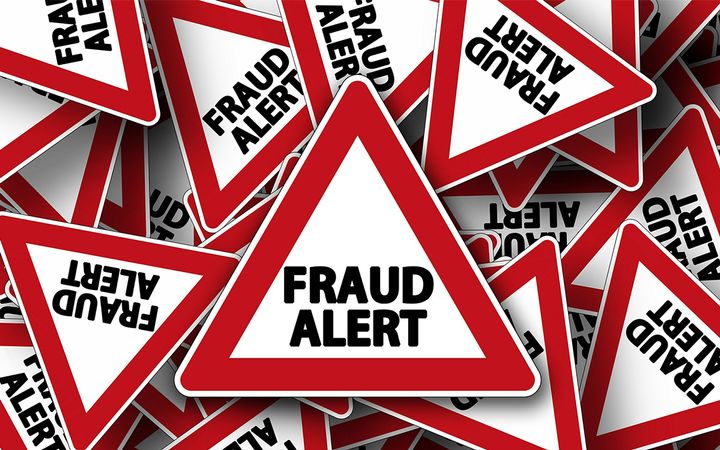Auto Lien Sale Fraud in Florida: What Every Lender Needs to Know

A lender’s best strategy is to recognize potential fraudulent situations as early as possible and set up procedures to guard against losing its interest in the car through a lien sale.
Most loans to consumers involve either car or mortgages. Since a mortgage is secured by real property, only real estate taxes come before the lender’s lien. With real estate, a lender will almost never lose its first priority lien position. But, lenders in many states making car loans, including Florida, face the possibility of losing their liens. How? In Florida, for example, a company that tows or stores a car, or a shop that does repairs on a car, can place a lien on the car when not paid for its services, then hold a lien sale and obtain a clear title.
Some shops actually do legitimate repairs on cars. Many shops, however, are unscrupulous and engage in what I call “lien sale piracy.” This problem, seen primarily in South Florida, has reached epidemic proportions in defrauding car lenders and dealers. For example, criminals fraudulently purchase, lease or use straw buyers to acquire new cars with no intention of ever paying the loans. Once in their hands, cars are given to unscrupulous towing companies or repair shops who send out lien sale notices with the hope the lender will not respond timely. In some cases, notices were sent by certified mail in an empty envelope, so the lender never finds out about a lien sale. In other instances, car VINs were switched and cars resold or shipped out of the country.
Florida law provides that after giving notice by certified mail to the car owner and lender, the shop can sell the car at a public “lien sale” to recoup unpaid fees and costs. Should a lien sale take place, the buyer will quickly apply to the DMV and obtain a clean, free and clear title, so the lender’s lien is eliminated.
Florida law has several remedies a lender can use to prevent lien sale fraud. For example, a lender may obtain possession of a car from the shop before the lien sale by posting a bond with the Clerk of Court. Note that Florida has very strict time limits by which a lender can take action after receiving a towing or repair lien sale notice to prevent the sale of the car and loss of its lien. Once the lien sale takes place, a lender’s rights are very limited. Therefore, a lender’s best strategy is to recognize potential fraudulent situations as early as possible and set up procedures to guard against losing its interest in the car through a lien sale.
Facts Indicating Lien Sale Fraud
- The following facts are indicators of fraud by shops and towing companies related to lien sales:
- Recent purchase or lease of the car (particularly new, expensive high-end car), and a payment default.
- Not able to contact the customer.
- No accident information from the insurance company, customer or Carfax.
- Towing company or repair shop recently incorporated in Florida, or not licensed.
- The telephone number for the towing company or shop on the Lien Sale notice is not answered, and messages are not returned. If calls are answered, excuses are made for not allowing an inspection of the car.
- The address where the lien sale is scheduled to take place is not a shop or commercial business location (e.g. a home, or a mailbox location).
- Generally, repair shops and towing companies will not be cooperative when attempts are made to contact them. Their goal, it seems, is to delay the lender taking any action before it is too late, and their lien is eliminated.
Steps to Take to Prevent Lien Sale Fraud
An important tip is to insist on confirmation in writing if advised the car was picked up by the customer or told the lien sale will be postponed or canceled. Lenders must act quickly to protect their interest in a car when dealing with lien sales. Upon receipt of a lien sale notice containing the sale date, it is recommended that a lender immediately:
- Calendar the lien sale date.
- Contact the customer (which, in many cases, cannot be found) to find out any information about the car, including whether the towing or repairs were authorized.
- Contact the party asserting the lien and/or the noticing company (e.g. Best Lien Services) and request (a) documentation of the work or services (i.e. bills for towing, storage or repair estimate, repair invoices and signed authorizations for repairs), (b) a time to inspect the car, and (c) photos of the car (before and after the alleged repairs).
Do Not be a Victim of Lien Sale Piracy
The clock is ticking toward the lien sale date and the date by which a lender can post a bond to stop the sale. In many cases, the shop intentionally will be unresponsive or drag its feet. The shop likely will lie, telling the lender the car has been picked up and the lien sale canceled. In the event a satisfactory documentation of repairs is not received or a timely inspection is not conducted, lenders should escalate the case to management and their outside legal counsel to assist in stopping the lien sale and obtaining possession.
Dennis J. LeVine is a partner at Kelley Kronenberg, a multi-practice business law firm. He focuses his statewide practice on bankruptcy litigation and creditors’ rights.

